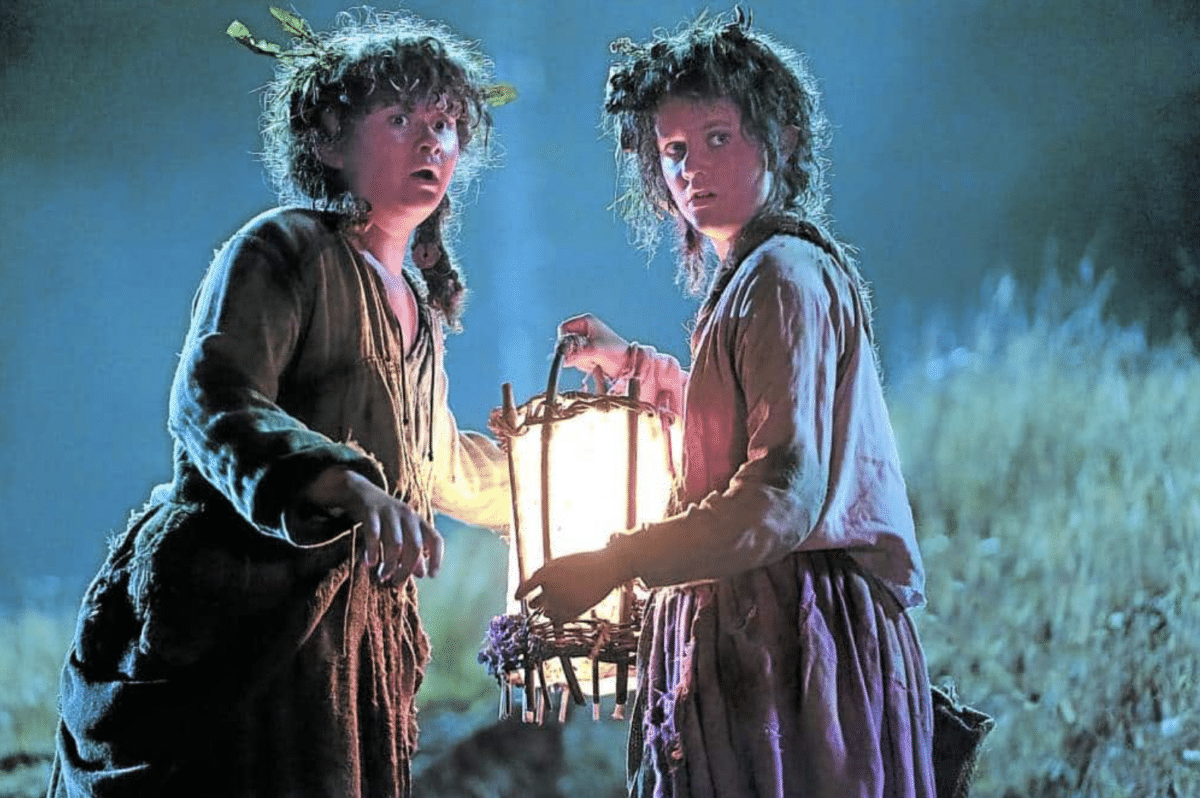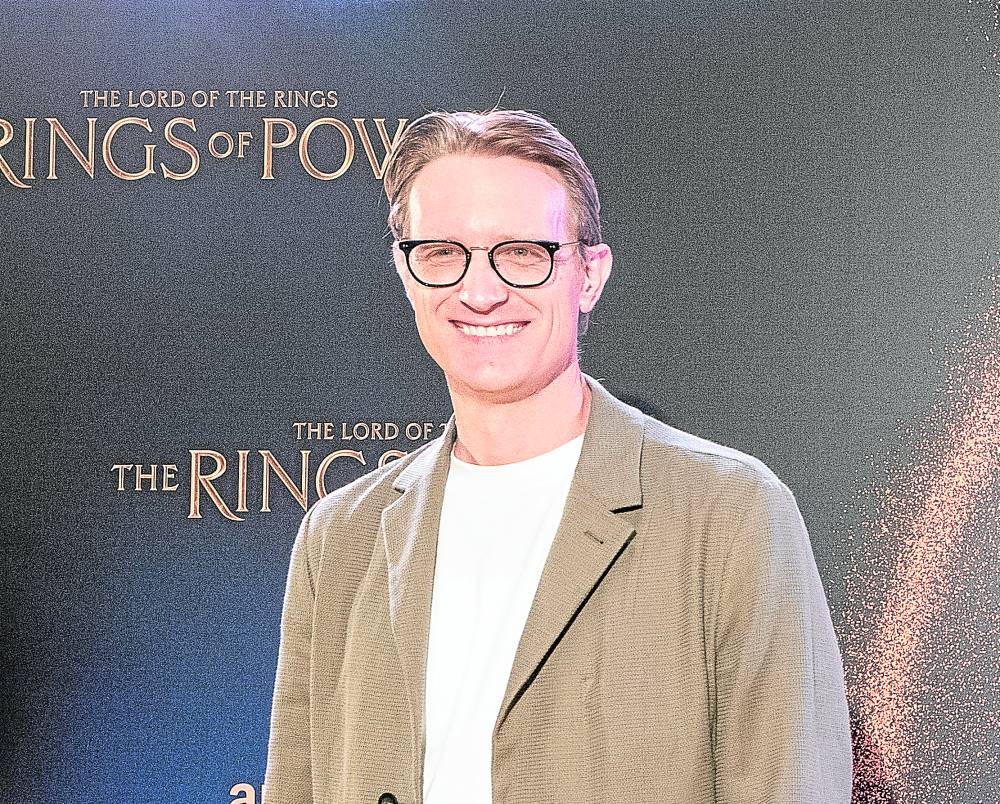‘LOTR: The Rings of Power’: Lore and levity in Middle-earth

Megan Richards (left) as Poppy and Markella Kavenagh as Nori
When we spoke to JD Payne—who shares showrunner duties with Patrick McKay in Prime Video’s “The Lord of the Rings: The Rings of Power”—in a virtual interview two years ago, we were impressed by his enthusiasm and eloquence.
Indeed, the good-looking, Yale-educated writer-producer knew how to “sell” his long-term concept for the show so well that it made us understand the reason behind not just casting “relative unknowns” in crucial roles, but also the pacing issues that some viewers say are weighing down the series’ narrative development and viewability.
“Tolkien’s imagination is so expansive, and it goes so deep,” he explained to Inquirer Entertainment. “I mean, he created 9,000 years of history, so having a 50-hour canvas that we know we’re going to be painting on and creating from the beginning really allows us the opportunity to be very methodical and intentional in our storytelling choices.
“We can set things up in Season 1 that aren’t going to pay off until Season 5. It gives viewers time to fall in love with characters and experience them in all their various ups and downs, so that when you get to those huge moments of scope and battle, it’s not just the character you’ve been hanging out with for an hour, you’ve been with them for 20 or 30 hours! Hopefully, that will make the emotional investment all the richer.”

Showrunner JD Payne —PHOTOS COURTESY OF PRIME VIDEO
Higher approval rating
And it looks like the risk is paying off: In fact, Season 2 even has a higher approval rating—at 85 percent as we write this—from critics on review aggregator Rotten Tomatoes.
Here’s our exclusive chat with JD, who was paired with Markella Kavenagh (the Harfoot Nori) and Megan Richards (Poppy), at the Season 2 premiere in Singapore last month:
You and Patrick boldly visualized this story as a 50-episode arc. How would you describe the significance of Season 2 in the larger scheme of things?
JD: In Season 1, we were setting up the chessboard, so to speak, and introducing viewers to a lot of new worlds and characters and storylines involving the Second Age of Middle-earth. Then, at the end of the first season, there was a surprising turn where Halbrand (Charlie Vickers) was revealed to be Sauron, but he ended Season 1 really with nothing.
Galadriel (Morfydd Clark) said no to him, and he had no rings, no armies, no allies—except for his own cunning, which was the only resource he had. So in Season 2, we watch as he uses that “skill” to set the narrative in motion. He is manipulating the Orcs here and the Elves there.
But really, the spine of the season is, he’s going to [the Elven city of] Eregion in the guise of Annatar to seduce Celebrimbor (Charles Edwards), forger of the rings. And we get to watch as he gaslights him throughout the season.
So, it’s a darker season. Season 1 was about the hero, while Season 2 is about the villains. We get to watch Sauron as he manipulates Celebrimbor into making the Rings of Power.
Markella and Megan, you were among the fan favorites in Season 1 because of the levity that you provided, imbuing your characters with disarming relatability. In what way do you relate to Nori and Poppy?
Megan: I have a lot of female friends, and I can see a lot of the same things happening within my real life. Female friendships and the friendship between Nori and Poppy onscreen, there’s such realism there. And it isn’t just one dimensional, it’s multidimensional. You know, they butt heads and disagree, but by doing that, they challenge each other. And that’s something that we need in life to be able to have balance.
Life is not smooth-sailing, and that’s something Poppy and Nori are very aware of as characters. But as for me, something that I relate to about Poppy is her loyalty. I’m very loyal to the people I have in my life and that’s something that I love about her.
Markella: To echo that, I think that what’s true to life are our really close friendships … with people who aren’t scared of each other, aren’t scared of voicing their feelings and fears.
It was amazing reading Nori and Poppy’s friendship on the script—JD and Patrick did such a wonderful job creating these characters and this dynamic, because it’s so true to life. Hopefully, it will also inspire people to be more honest and more kind, to help them express how they’re feeling within their friends as well. And that’s something I related to.
I’ve been saying that I really relate to the protectiveness that Nori has over the things and people she believes in … to those she loves and cares for. So, with the friendships that I have in my life, I want to be able to communicate and be open. And if I’m feeling a certain way about a friend, I want to be able to express it and have that conversation.
JD, taking a deep dive into Middle-earth can be quite daunting for anybody who’s new to the story because of the expansive scope of Tolkien’s imagination. After all, that’s 9,000 years of history and myth-spinning. Didn’t you find it intimidating to follow in the footsteps of the movies that won Oscars and were also huge hits at the box office?
JD: Yes, of course. Patrick and I are both huge admirers and fans of the movie franchise. We’ve also experienced people’s excitement about Middle-earth. But all that intensity, I would say, is just an expression of their love for this material because it’s been done so well, both in literature and in films.
But ours is played out in a different medium, where we’re doing a 50-hour television show. This gives us the opportunity to do it in a slightly different way, so it won’t have the same architecture as a feature film. And it’s the same way anytime you’re going between different mediums. It gives you different challenges and different opportunities.
We’ve been given the opportunity to go deeper into some of Tolkien’s lore, to bring this age to life in a way that hopefully harmonizes with not just [director] Peter Jackson’s films, but also with a lot of other artists, like [illustrators] John Howe and Ralph Bakshi, who have been working on Middle-earth as well.
There’s a whole series of artists who have been inspired by Tolkien in different mediums for generations now, and we feel fortunate to be the stewards of Middle-earth right now. We hope that our work can also stand on the shelf next to some of other great works.